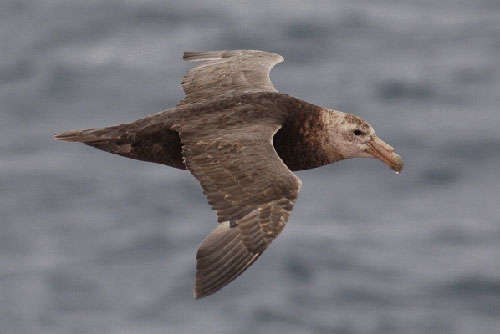The Scientific Committee on Antarctic Research Expert Group on Birds and Marine Mammals (SCAR EG-BAMM) was formed to replace two separate SCAR expert groups dedicated to seabirds and to seals, with the addition of cetaceans to its remit.
The new group, inaugurated at the SCAR Biology Symposium held in Sapporo, Japan in July 2009, will next meet at the SCAR 2010 Open Science Conference, to be held in Buenos Aires, Argentina in July. The Chief Officer of the EG-BAMM is Mark Hindell of the University of Tasmania and its Secretary is Yan Ropert-Coudert of the Université de Strasbourg, France, supported by a small core group of members.
Following the Japan meeting, when a working format was established and aims and potential projects discussed, the Argentina meeting will concentrate on commencing the compilation of an Antarctic Bird and Marine Mammal Tracking Data Base. This data base will cover flying birds and penguins, as well as seals and whales, utilizing information collected by satellite tracking and remote logging devices. Its area of interest will match that of SCAR's: including the whole Southern Ocean and its sub-Antarctic and cool-temperate islands.
The model to be broadly followed is that previously adopted in the compilation of the Global Procellariiform Data Base (BirdLife International 2004). The SCAR expert group will work closely with BirdLife's Global Seabird Programme in adding to and updating the information of albatrosses and petrels, and thus will cover most of the species currently listed within ACAP.
It is expected the tracking data base will be of seminal value in advising SCAR in relation to the selection of Marine Protected Areas in the Southern Ocean. A further value will come by way of a gap analysis to identify where (and on what species) new tracking studies are needed to help manage the biota and ecosystems of the far south.

Reference:
BirdLife International 2004. Tracking Ocean Wanderers: the Global Distribution of Albatrosses and Petrels. Results from the Global Procellariiform Tracking Workshop, 1-5 September 2003, Gordon's Bay, South Africa. BirdLife International: Cambridge. 100 pp.
John Cooper, ACAP Information Officer, with Mark Hindell, Department of Zoology, University of Tasmania, 25 February 2010

 English
English  Français
Français  Español
Español